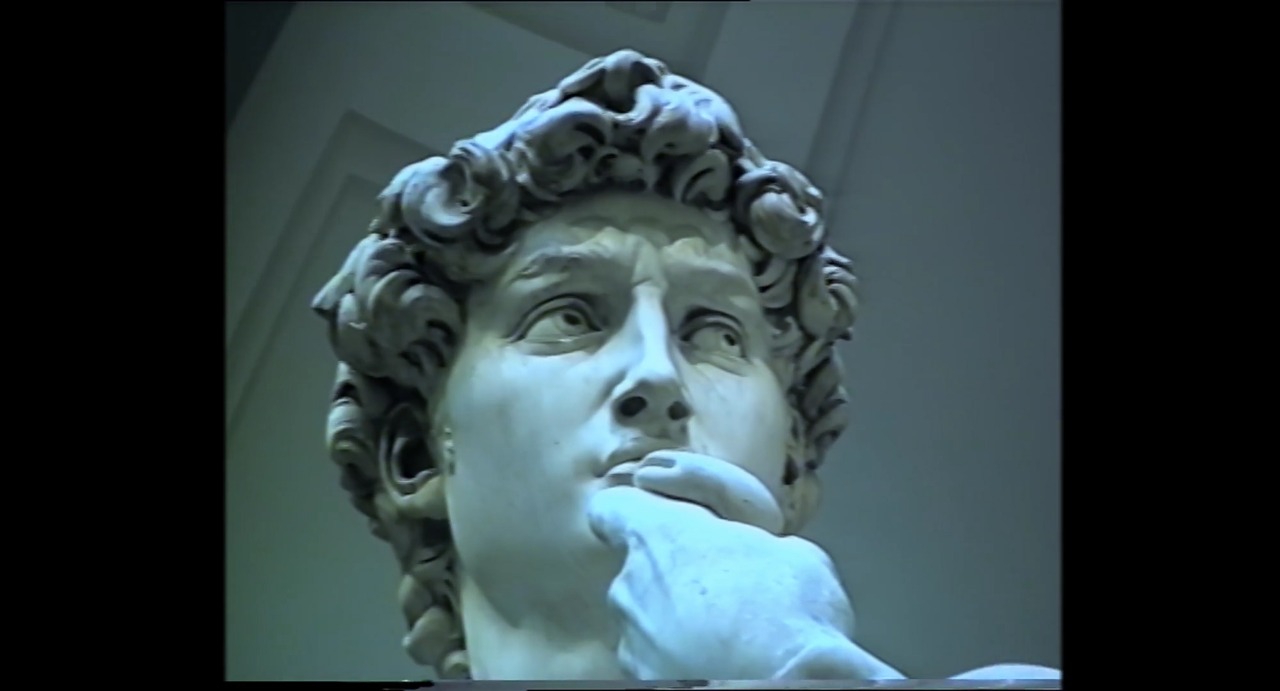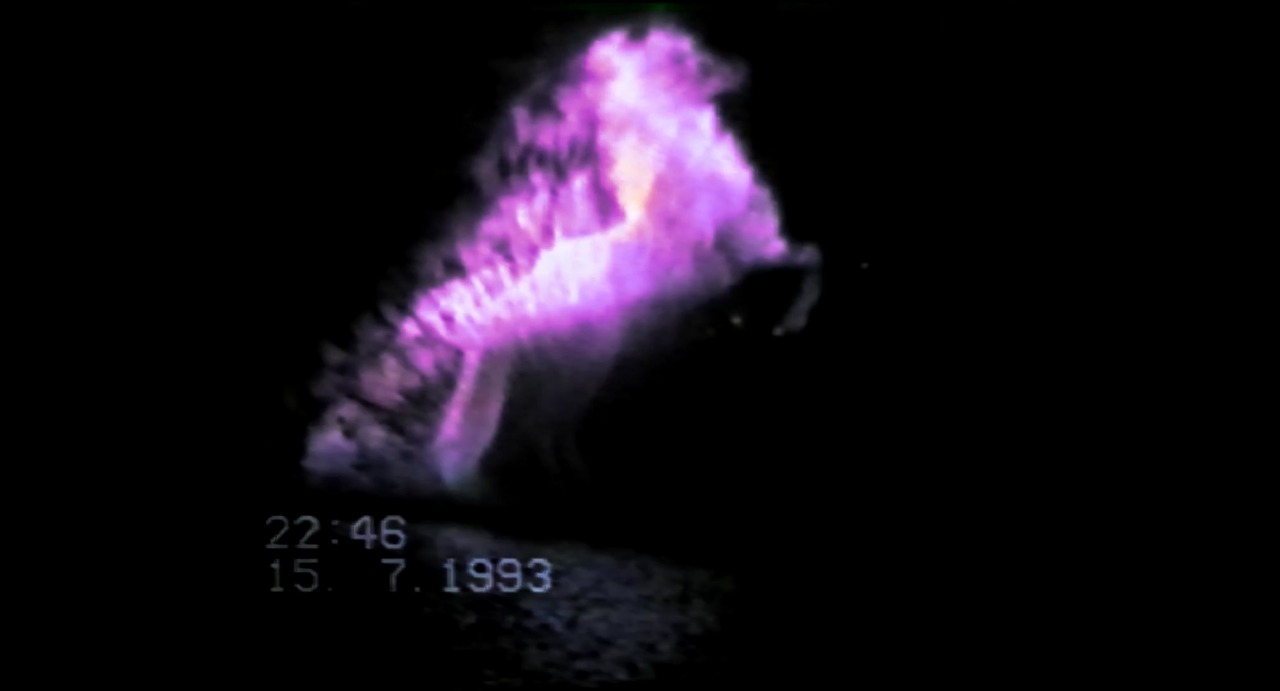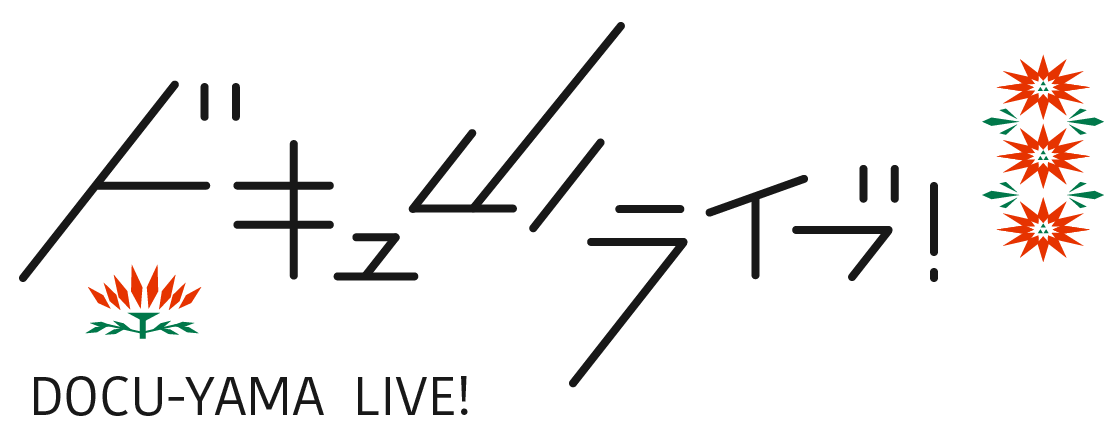The Yamagata Film Criticism Workshop has taken place during the YIDFF since 2011. This project encourages thoughtful writing on and discussion of cinema, while offering aspiring film critics the chance to immerse themselves in the lively atmosphere of a film festival. Co-presented by YIDFF and Festival Film Dokumenter, the Film Criticism Workshop moves to Jogyakarta. It’s a 6-day class filled by learning how to write film criticism with two mentors: Chris Fujiwara (USA/JAPAN) and Adrian Jonathan Pasaribu (Indonesia) during the Festival Film Dokumenter in Jogjakarta, Indonesia, Thursday, 6 – Tuesday, 11 December 2018. The final essay written by the seven international participants are introduced on this website. Here, “The History of His Story: Silence Is a Falling Body” by Talissa Febra.
The History of His Story: Silence Is a Falling Body
Talissa Febra (Indonesia)

Can the truth of a person’s life ever be known by other people? Truth is an elusive thing, and the closest we can get to a person’s interior life is to see it through their own eyes. Agustina Comedi uses old photographs and home videos of her father, Jaime, to pick apart the matryoshka of his truth and construct the facts the best way she can. Silence Is a Falling Body gently peels layer after layer, reveals detail after detail, guiding us to create an image of Jaime and to keep reconfiguring our interpretation of him as the film plays out before us. He is a loving father first, then a determined political activist, and a man-loving man after that, and also a happy husband to a beautiful wife.
Comedi was not the first person to find out about the part of Jaime’s life that was previously invisible to his family, but she was the first to piece it all together and lay it out, for better or worse. She doesn’t shy away from the film: she makes her presence known via voice-over narration and uses pauses and repetition to explain and emphasize. The film doesn’t just throw you little bombs of surprises to blow your mind, but it invites you into Comedi’s living room to watch these tapes in the dark with the family as they revisit the memories of a beloved son, uncle, brother, and father. Silence Is a Falling Body is about Jaime, but Comedi is the one who has control. Comedi is not interested in tidying up the story of her father’s life or protecting the image of him that she has in her head. She is curious to compare the Jaime that she knew and the Jaime other people knew, so she interviews his family and friends to find out which memories overlap, which ones contradict, and which can be perceived as a true description of Jaime.
Silence Is a Falling Body is a convergence of many things: a look at the fears and hardships LGBTQ+ people in Argentina faced in the ’70s, an emphasis on drag as not only a physical performance but a psychological one, and a commentary on leftists who claimed to be progressive but would throw their “overtly homosexual” friends under the bus, seeing them as a stain on the movement. To Comedi, presenting all of these moments might serve as the best approximation of the fullness of Jaime’s life. They help us create an image of Jaime from scratch, and at the same time they supplement her memory of her father with the parts of his inner life that she was never a part of and he never got a chance to tell her about — helping her adjust the truth that she’s used to.
Comedi built Silence Is a Falling Body upon something Jaime’s friend said, rather than a memory of Jaime himself. On her 15th birthday, Jaime’s friend told her that when she was born, something in Jaime passed away. Comedi lets us hold on to that sentence before coming back to it in the second half of the film. She prefaces her interpretation of its meaning with a recording of a performance of The Little Mermaid’s “Part of Your World.” The Little Mermaid is about a person who wants to belong and who sacrifices something essential to herself in exchange for something she thinks would bring the happiness she dreams of. It’s a story that mirrors Jaime’s: he had to hide and bury his queerness in order to fulfill his dream of having a child. Comedi gives us a clue about this revelation at the very beginning of the film, when Jaime’s camera shoots male statues in a museum before fixating on Comedi’s younger self: an encapsulation of what Jaime left behind before dedicating his life to his daughter.
The uncovering of a person’s secret life after their death in Silence Is a Falling Body calls to mind Sarah Polley’s Stories We Tell (2012). In her documentary, Polley tried to piece together her late mother’s life from interviews with everyone who knew her. Through the making of the documentary, Polley found out that she was actually a product of an extramarital affair her mother had. Each of these family-centered documentaries deals with the stories around a person’s life rather than providing a chronological account of that life itself. In Stories We Tell, Polley’s mother gave up being an actress to have a family; in Silence Is a Falling Body, Comedi’s father gave up a part of his identity to have a family. These are stories of people who are trapped by traditional gender expectations and of how some parts of them are taken away in the process. These are stories of the way members of a family change once some secrets get uncovered and they have to restabilize their perception of people who can no longer explain themselves, and how they rebuild the images of themselves based on those changes.
Stories live on because they keep being passed on from one generation to another. Closing Silence Is a Falling Body, Comedi passes her camera to her son, who then asks her to record him instead. She asks what is the most marvelous thing in the world for him, and he replies, “Seeing things for the first time.” Comedi pauses, letting us sit with the fact that seeing her father’s past clearly for the first time is an emotionally complicated thing — for us, and even more so for her. The tension produced by this insight is left unresolved, a loose end that fits the story it tells. Comedi knows she may never fully figure out her father, for the truth of a person’s life is reserved to that person only.

![ドキュ山ライブ! [DOCU-YAMA LIVE!]](http://www.yidff-live.info/wp-content/themes/yidff-live_2017/images/header_sp_logo1.png)

